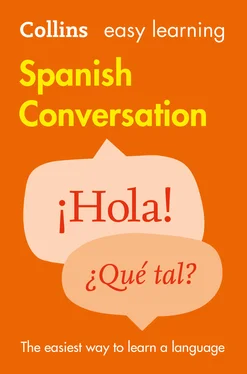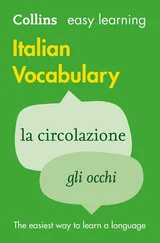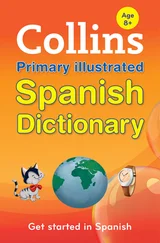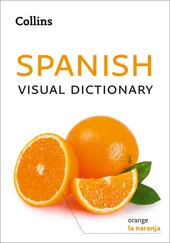• The most economical hotels and guesthouses in Spain are pensionesand hostales, which offer no-frills accommodation. Unlike British B&Bs, they do not normally include breakfast so you may have to go elsewhere to get some.
• At the other end of the scale are the paradores nacionales de turismo, hotels which are located in places of interest and which are often historic buildings such as castles or monasteries.
• Accommodation in casas ruraleshas become very popular in Spain. These are country houses and cottages that have been converted for holiday lets or that have been turned into guesthouses.
• If you’re a man, you’re likely to hear receptionists and waiting staff call you caballero(literally gentleman ). If you’re a woman, you’ll hear señora(literally lady ) used in the same way. If the staff are young, you can call them túrather than usted, even when they call you ustedback.
• If you want to rent a flat to live in in Spain, you’ll probably have to sign a contrato de alquileror de arrendamiento( lease ) and leave a fianza( deposit ) of one or two months’ rent with the dueñoor propietario( landlord ).
Wining and dining
¡Buen provecho! – Enjoy your meal!
If you’re going out for a meal in Spain, the phrases in this unit will give you the confidence to talk to the waiter and chat with your Spanish friends in easy, natural Spanish. We’ll also give you some tips on getting advice about what to order, and a few key phrases the waiters are likely to use.
If you’re going out for a meal with Spanish-speaking friends or colleagues and you want to make arrangements such as where and when to meet, you can use the verb quedar(meaning to meet or to arrange to meet ).
| ¿ Quedamosen el restaurante? |
Shall we meetat the restaurant? |
| ¿ Quedamosa las nueve? |
Shall we meetat nine o’clock? |
| ¿ Quedamos con ellosen el Café Zurich? |
Shall we meet themat the Café Zurich? |
| ¿Cómo quedamos? |
Where shall we meetand when? |
| ¿Dónde quedamos? |
Where shall we meet? |
| ¿ A qué horaquedamos? |
What timeshall we meet up at? |
| ¿ A qué horapodrá llegar aquí tu mujer? |
What timewill your wife be able to get here? |
| ¿ Para qué horahas reservado mesa? |
What timedid you book the table for? |
| ¿ Hasta qué horasirven? |
Up to what timedo they go on serving? |
When making arrangements to eat, you’ll want to check what suits other people. Use ¿No te importa que…?followed by the subjunctive or ¿No te importa si…?followed by the ordinary present to ask Is it ok with you if…? Of course you should only use tewith someone you call tú. Change it to leif you call them usted. For more information on the subjunctive, see here.
| ¿ Note importa quevenga un amigo mío? |
Would it be ok ifI brought a friend of mine? |
| ¿ Note importa silo dejamos para la semana que viene? |
Would it be ok ifwe left it till next week? |
| ¿ Noos importa sillegamos un poco más tarde? |
Would it be ok ifwe got there a bit later? |
To say what would suit you better, you can use me vendría mejor( it would suit me better ). vendríacomes from venir( to come ).
| Me vendría mejorquedar contigo allí. |
It would suit me betterto meet you there. |
| ¿ Te vendría mejorel sábado por la noche? |
WouldSaturday evening suit you better? |
| El viernes me vendría mejor. |
Friday would be better for me. |
| Me viene mejorsi quedamos un poco más tarde. |
It would be better for meif we made it a bit later. |
| ¿ Te viene mejorsi lo dejamos para mañana? |
Would it suit you betterif we left it till tomorrow? |
One of the pieces of information you may need to find out is where things are. Remember that when you ask where something is, estaris the verb you generally use.
| Estoy buscando la calle Teruel, ¿sabe usted dónde está? |
I’m looking for the calle Teruel. Do you know where it is? |
| ¿Sabe usted dónde estáel restaurante Don Alfonso? |
Do you know wherethe restaurant Don Alfonso is? |
| Perdone, ¿ dónde estánlos servicios? |
Excuse me, where arethe toilets? |
Before you decide where to eat or what to eat, you may want to find out what the restaurant or the food is like. Don’t forget that Spanish has two verbs for to be : serand estar. For more on these verbs, see here.
| ¿ Esun restaurante muy caro? |
Is ita very expensive restaurant? |
| ¿ Esun plato típico de la zona? |
Isit a typical local dish? |
| ¿ Esapto para vegetarianos? |
Is itsuitable for vegetarians? |
| ¿La bebida estáincluida en el menú de 10 euros? |
Aredrinks included in the 10-euro set menu? |
To ask more specifically about the menu, you can use ¿Qué…?( What…? ).
| ¿Con quélo sirven? |
Whatdoes it come with? |
| ¿ Quélleva? |
What’s in it? |
| Las gambas en gabardina , ¿ quéson? |
Whatare gambas en gabardina ? |
| ¿ Quéhay de postre? |
Whatis there for dessert? |
If you want to ask the price of something, you can use ¿Cuánto vale…?( How much is…? ).
| ¿ Cuánto valeuna botella de vino de la casa? |
How much isa bottle of house wine? |
| ¿ Cuánto valeel menú del día? |
How much isthe set menu? |
Читать дальше












